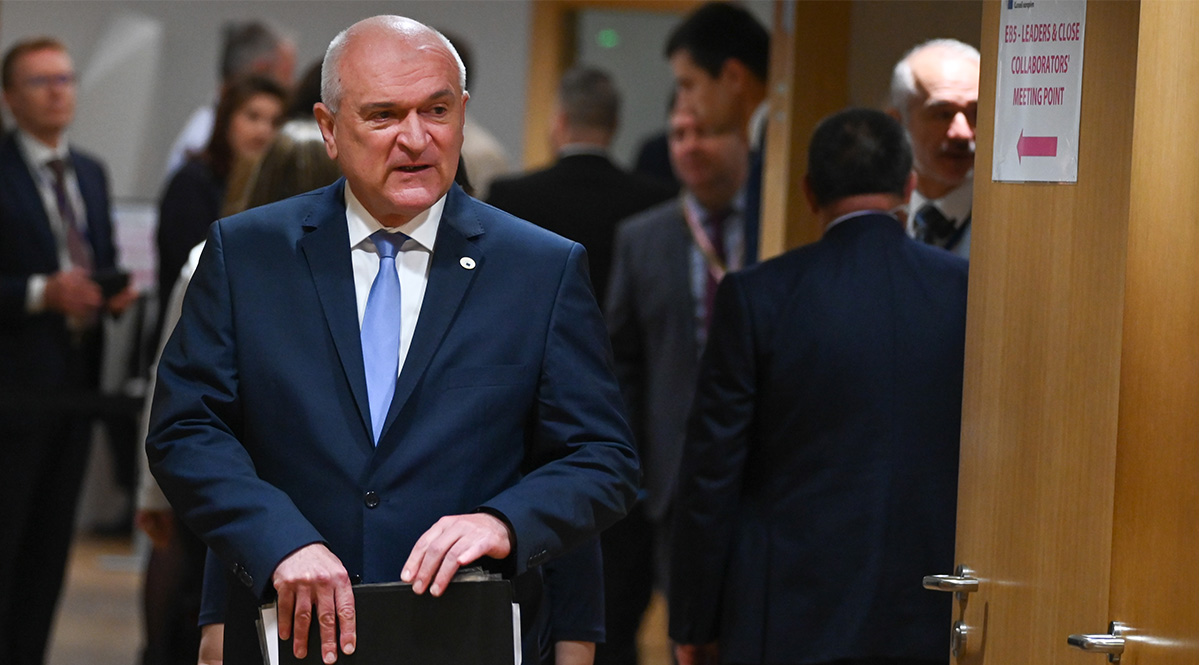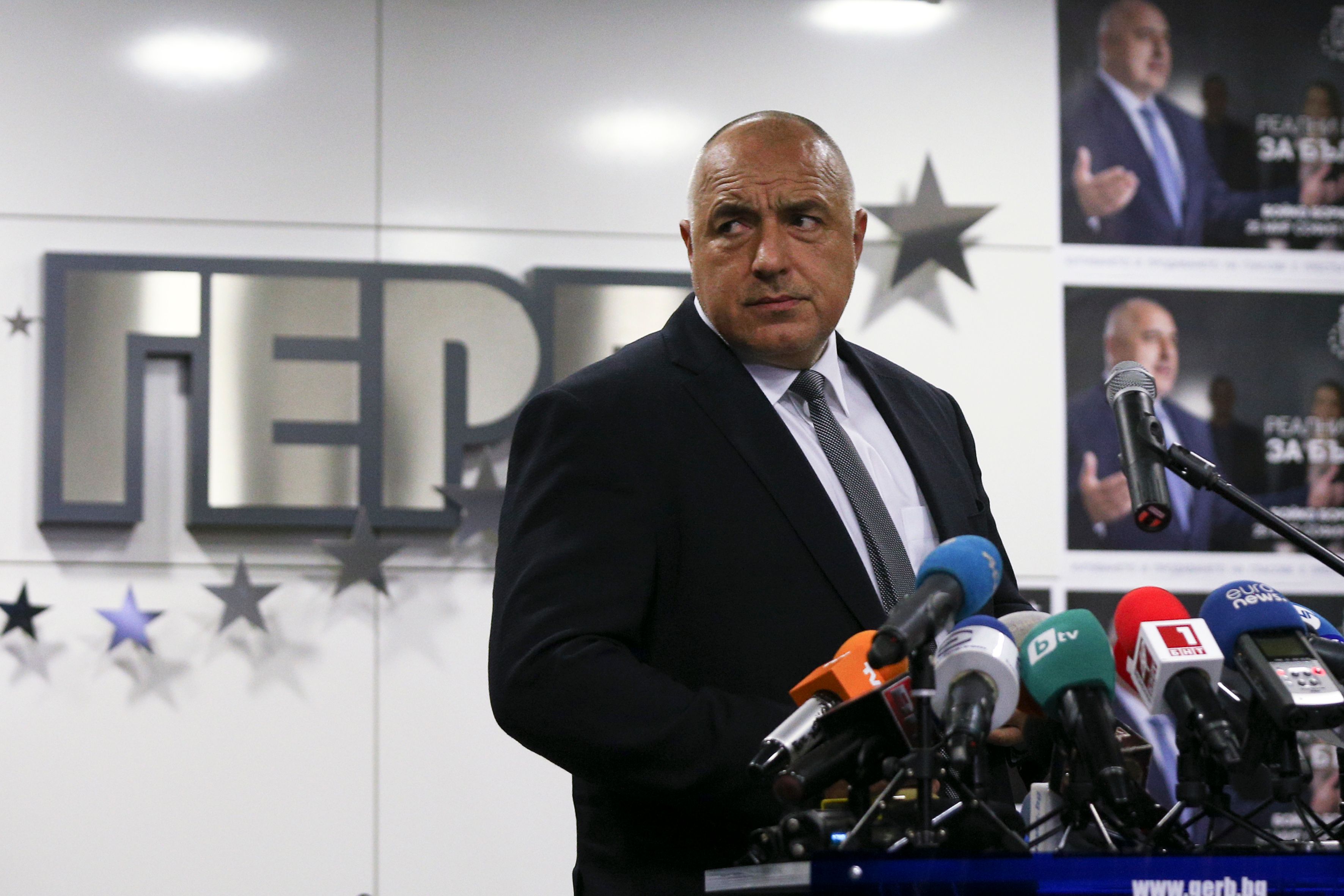A Never-Ending Story: Bulgaria Again Heads to Early Parliamentary Elections
President Rumen Radev has called the next parliamentary elections—the sixth since spring 2021—for 9 June in Bulgaria. The reason was the break-up in March of the grand coalition of the centre-right Citizens for European Development of Bulgaria (GERB) party and the centre-left-liberal alliance We Continue the Change and Democratic Bulgaria (PP-DB). The state is led by the technical government of Dimitar Glavchev, maintaining a Euro-Atlantic orientation and a course towards joining the eurozone. With the uncertain prospect of a permanent majority emerging after the elections, the tenure of such a cabinet could be prolonged, which would not be conducive to stabilising Bulgarian foreign policy.
 Aleksiej Witwicki / Forum
Aleksiej Witwicki / Forum
Bulgaria has been in a political crisis for four years. The spring 2021 elections, following a wave of 2020 anti-corruption protests, secured a parliamentary seat for new anti-establishment parties of both left-wing and right-wing ideologies. They were united by the demand to eradicate systemic corruption. They accused GERB, led by Boyko Borisov, the prime minister with brief breaks from 2009-2021, and the Movement for Rights and Freedoms (DPS), grouping a Turkish minority, but in fact controlled by oligarchs, of such corruption. The new parties rejected cooperation with GERB and DPS, but at the same time were unable to build stable governing coalitions. This resulted in the dissolution of parliament and early elections five times since then.
GERB, however, remains the strongest party in the 240-seat National Assembly. It has 69 MPs in the expiring term. The second-strongest, PP-DB, led by the former Prime Minister Kiril Petkov, has 64 seats. The nationalist and pro-Russian Revival has 37 MPs, the DPS has 36, the post-communist Bulgarian Socialist Party has 23, and the populist There Is Such a People (ITN) has 11.
Disintegration of the Ruling Coalition
The grand coalition in power since May 2023 fell apart with the failure of the rotation for the post of prime minister. The partners agreed on a formula—used for the first time in Bulgaria—of a government for 18 months. It was headed by Nikolai Denkov of PP-DB, while Marija Gabriel of GERB, formerly the EU Commissioner for Innovation and Youth, was deputy prime minister and foreign minister. After nine months, they were to swap functions and the other ministers, of whom most were experts, were to keep their posts. The formula was the result of the PP-DP’s distrust of GERB. The former presented itself as a party ready to overcome political obstinacy for the good of the Bulgaria, while in fact it wanted to relinquish some of the responsibility for the state of the country and neutralise the justice and secret service reforms advocated by the PP-DB. That party, in turn, opted for a coalition with its main opponent because it feared the departure of an electorate disillusioned by the party’s inability to govern. In order to limit its image losses, it refused to sign a formal coalition agreement and to call the cooperation with GERB a coalition.
GERB wanted to use the rotation to change the arrangements and strengthen its position in the coalition, but this led to its disintegration. After the agreed resignation of Denkov’s government in March, Borisov changed the terms, demanded that Gabriel, as prime minister, remain head of the foreign ministry, while Denkov was offered the ministry of education and science. Borisov also demanded the defence and energy ministries for GERB. With the lack of its partner’s agreement, GERB returned the mandate to form a government, which it had constitutionally received from the president as the strongest party. Radev then handed it over to the second-largest PP-DB, which gave it back when GERB ruled out a return to the original rules of rotation. Eventually, the president called early elections after, in the last act required by the constitution, he handed over the pro forma mandate to the ITN, which promptly relinquished it.
Technical Government
Until the formation of a new regular cabinet, Bulgaria is led by a technical government. As its head, Radev appointed Glavchev, the GERB-origin governor of the Bulgarian National Audit Office (SPB). A constitutional reform passed by the coalition with the support of the DPS at the end of 2023 deprived the president, hostile to these parties, of the freedom to nominate a technical prime minister. It limited the circle of nominees to the Speaker of Parliament, the Ombudsman, the governors of the National Bank of Bulgaria, and the SPB and their deputies. During the earlier crises, Radev—distancing himself from unequivocal support for Ukraine and breaking off cooperation with Russia by nominating subservient technical prime ministers, despite his lack of prerogative to do so—was actually running the state. The change in his position is evidenced by the European Council meeting in April when Bulgaria was represented by Glavchev, unlike under previous technical governments when the president did so. The reform also took away his right to dissolve parliament together with calling early elections, so the current one will sit until a new one is assembled.
Glavchev announced the continuation of Bulgaria’s Euro-Atlantic policy. The country’s goal remains to join the eurozone in 2025, a depoliticised process in which the GERB and PP-DB coalition had already carried out the most important amendments and blocked a referendum on the issue called for by the president. They feared its outcome, which, according to various polls, was uncertain, as the percentage of supporters and opponents was even. The technical government continues to support Ukraine, with Bulgaria one of the main suppliers of Soviet-design ammunition. It will also implement the army modernisation plan adopted by the Denkov government, providing 2% of GDP by 2032 to fund it. These policies are supported by GERB, PP-DB, and DPS, but the implementation of concrete measures may be hampered by Glavchev’s need to seek approval from the conflicted parliament each time.
The day-to-day operation of Bulgaria’s technical government on the international stage is hampered by internal ineffectiveness. Foreign Minister Stefan Dimitrov was accused of extreme irresponsibility after Bulgarian authorities and diplomats from ally states were unable to make contact with him in any way during the Iranian attack on Israel, a situation that ended with his resignation after a week in office. Prime Minister Glavchev took up the post of foreign minister, as he was unable to get other candidates for it.
Little Prospect for Ending the Crisis
The parliamentary elections, held together with the European elections, probably will not significantly change the balance of power on the Bulgarian political scene. According to polls from April, GERB will remain the strongest, able to count on 25-27% of the vote (against 27% in the 2023 elections). This stable support is ensured by the belief among part of the electorate that only Borisov guarantees Bulgaria’s Euro-Atlantic orientation, while the alternative is rule by pro-Russian post-communists and populists. The PP-DP will remain the second force, but support for it is likely to fall from 25% to 16-18%, due to voter disillusionment with cooperation with GERB and a loss of faith in the country’s ability to reform. Like in 2023, Revival and DPS would each win 14-15% of the vote and the BSP 9%. ITN will probably slightly exceed the 4% electoral threshold again.
The limitation for the formation of a new regular government is the low coalition capacity of the parties. Borisov announces his readiness to recreate the broken coalition, but on the condition that GERB has a strong formal position in it. The weakened PP-DB is avoiding explicit declarations in order to stem its electorate outflow. It fears that building a majority may require not only cooperation with GERB but also DPS. This would be difficult from an image point of view, especially as the Movement was officially headed until recently and behind the scenes by Delyan Peevski, an oligarch sanctioned by the U.S. under its “Magnitsky Act”.
Conclusions
The fundamental reason for the unsustainability of the government and the subsequent early elections to the Bulgarian parliament is the limited coalition capacity of the incumbent parties. The incumbent coalition parties GERB and PP-DB have been unable to overcome the distrust that divides them. An attempt to change the balance of power with the rotation of the prime minister led to its collapse and the calling of new elections. These are unlikely to result in a significant change in the composition of parliament. The chance to break the clinch will remain the reconstitution of the GERB and PP-DB coalition, possibly expanded by the DPS. It may be underpinned by these parties’ unequivocal support for Bulgaria’s Euro-Atlantic orientation. At the same time, its stability will be affected by the PP-DB’s fear of being compromised in front of the electorate as a result of its cooperation with the parties of the oligarchic-corrupt system, which it has promised to dismantle.
The constitutional reform of 2023 has had an important effect in strengthening Bulgaria’s pro-European and Atlantic orientation during its protracted political crisis. This is because it deprived President Radev, who is in the middle of his second term (which lasts until autumn 2026) and advocating an ambivalent foreign policy, the de facto leadership of the state during technical rule. Glavchev’s cabinet, despite limitations, will continue to strengthen Bulgaria’s Euro-Atlantic ties and support Ukraine. This suits the interests of Poland, which advocates strengthen the Eastern Flank of NATO and the EU. However, political and governmental instability in Bulgaria will remain a challenge to long-term cooperation.




(1)_sm.jpg)
.jpg)